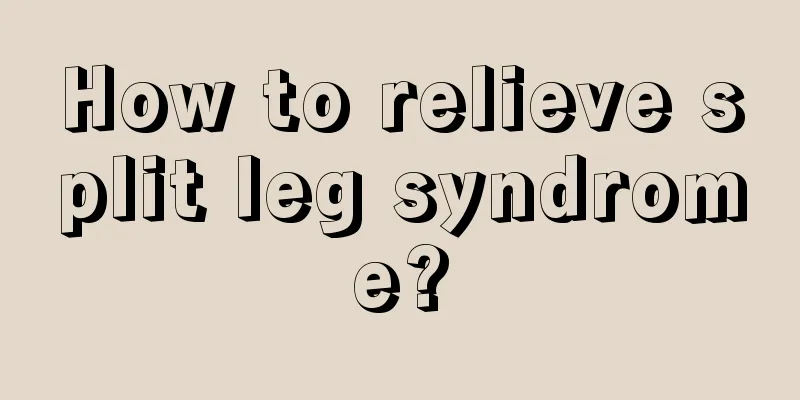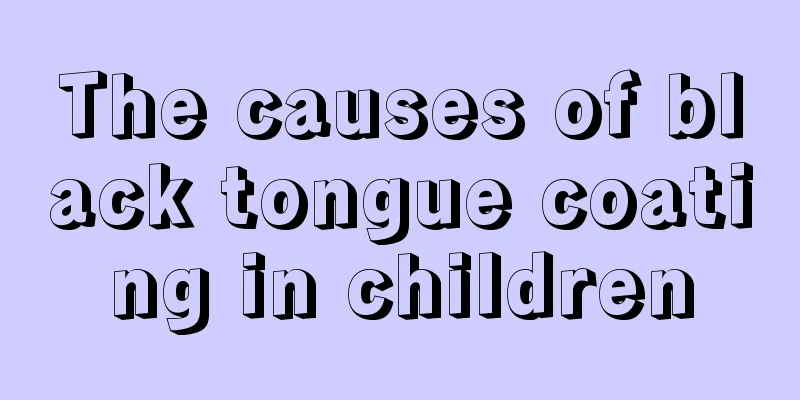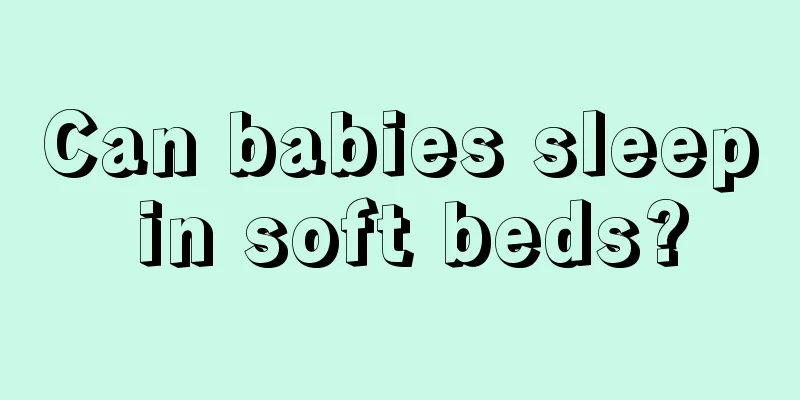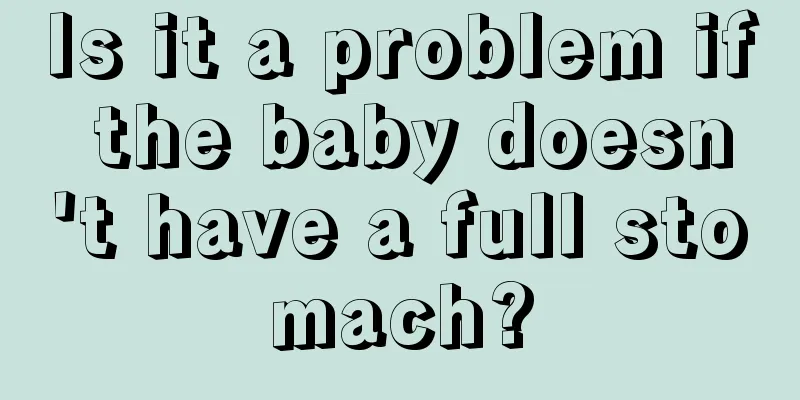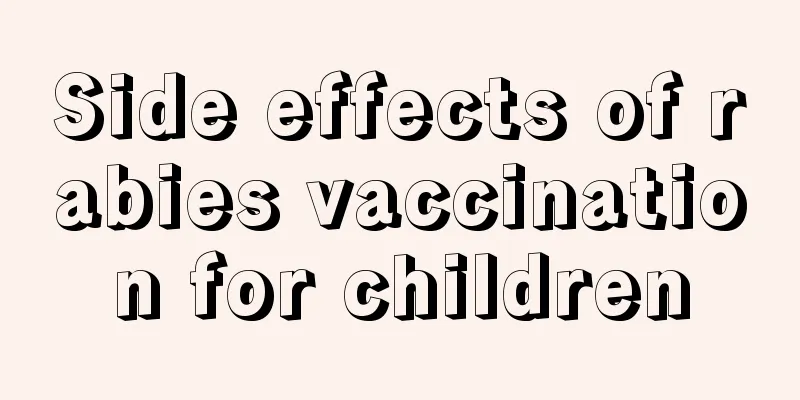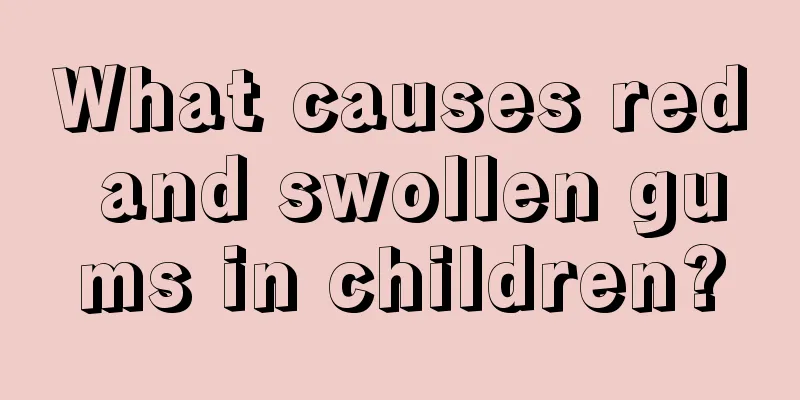What is the reason for excessive saliva?

|
If you often see children, you will find that children drool very easily. Therefore, some parents will hang a bib around their children's necks to catch the saliva to prevent the saliva from wetting their clothes. But although it's a common phenomenon, most parents don't understand why their kids are prone to drooling. Next, let me introduce to you the specific reasons why children drool. Drooling in children It is called drooling in written language, and most of the time it is a normal physiological phenomenon. The regulation of saliva secretion relies on two aspects: local stimulation in the oral cavity and the reflex of the nerve center. Newborns produce very little saliva because their central nervous system and salivary glands are not yet fully developed. By March, saliva secretion gradually increases, and some babies have a stronger secretion ability and will drool. When the baby is 6 to 7 months old, the baby's deciduous teeth erupt, which stimulates the trigeminal nerve and increases saliva secretion. In addition, the child's oral cavity has a small capacity and cannot swallow or regulate the saliva in the mouth, so the saliva will flow out naturally after accumulation. Saliva secretion is also controlled by nerves. Young children may drool frequently because their brain development is not yet complete, and their ability to inhibit saliva secretion and swallowing function are slightly poor. After the age of one, as the brain develops fully, drooling occurs less frequently. When children are 2-3 years old, their swallowing function and central nervous system are further improved and they will stop drooling. If a child continues to drool when he grows up, it may be pathological drooling rather than physiological. This may be caused by poor neurological or endocrine development, inflammation in the oral cavity, and indigestion, and must be diagnosed and treated. For example: when the oral mucosa is inflamed, it stimulates the secretion of the salivary glands and increases saliva production. Some saliva also contains yellow or light red mucus and has a bad odor. At this time, you should go to the dental department for diagnosis and treatment. When children have a cold or have difficulty breathing, they often breathe through their mouths, which can also cause drooling. Some children may also drool due to incomplete intellectual development of the brain or endocrine system diseases. In this case, they should see a pediatrician. After the baby is 6 months old, small pieces of rock sugar can be put into the baby's mouth to help him gradually develop the habit of swallowing saliva. Feed properly and eat more fresh vegetables and fruits to enhance disease resistance. Change the bad habits of kissing hard and pinching children's cheeks. For children who drool, special attention should be paid to personal hygiene: The saliva should be wiped off with a clean, soft handkerchief or tissue. Collars and lapels should be changed and washed frequently. To protect the skin of the chin and chest, you can put a clean gauze under it or use a bib. If the skin around the lips, jaw and neck is flushed, eroded or even peeling, you should wash the area frequently with warm water and then apply a small amount of ointment or oil. B. Saliva is produced by three pairs of large salivary glands and parotid glands in the oral mucosa. Secreted by the submandibular gland and numerous minor salivary glands. Saliva contains a variety of digestive enzymes that help digest food and neutralize the acids produced by bacteria in the mouth. If there is a lack of saliva, diseases such as mouth ulcers and tooth decay are likely to occur. A normal adult secretes about 1000 to 1500 ml of saliva per day. Such a large amount of saliva is almost all swallowed unconsciously, so no saliva will flow out and oral hygiene can be maintained. The salivary glands of newborns are not very developed and they secrete less saliva. After 5 months, the saliva secretion of children begins to increase. Because the floor of the baby's mouth is shallow and they cannot control the saliva in their mouth, and their swallowing function is poor, saliva often flows out of their mouth; when the baby changes from a lying position to a sitting or standing position, saliva is also easy to flow out; in addition, after the baby is 5 to 6 months old, the stimulation of the trigeminal nerve when teeth begin to erupt, or the stimulation of food can make saliva flow out of the mouth easily. These are all physiological. As the child grows up, these phenomena will gradually disappear. Generally, no treatment is required. Do not seek medical treatment indiscriminately. However, if your child rarely drools and suddenly drools more, he or she should go to the hospital for examination and treatment. |
<<: The child's anus is red and painful
Recommend
What should I do if my baby’s genitals are red?
Now that the two-child policy has been fully open...
What to do if your child has neck pain
There may be many reasons why children have neck ...
How to train your baby to lift his head
Lifting the head is an ability that babies need t...
How to treat hypospadias in children?
When a child has hypospadias at the urethral open...
What is the cause of the pain in the back of the child's head?
Pain in the back of the head is a problem that ma...
How to quickly reduce baby's fever without taking medicine or injections
There are actually many treatments for baby's...
Is herpes virus contagious in children?
Herpes is the most common skin disease. Herpes ca...
How to quickly relieve toothache in babies
Everyone knows that toothache is not a disease, b...
How to promote bowel movements in newborns?
Newborn babies are relatively young and cannot sp...
What to do if your newborn has trouble falling asleep
Most children sleep for a long time when they are...
Causes of uneven teeth
In fact, we found that many people's teeth ar...
What are the nursing measures for scarlet fever?
Many people do not know about scarlet fever. The ...
What to do if your child has dry and itchy skin
Dry and itchy skin is something we experience in ...
Treatment of crooked neck in newborn
Nowadays, examples of newborns with crooked necks...
Is it normal for premature babies to love sleeping?
Premature babies require more care and attention....
